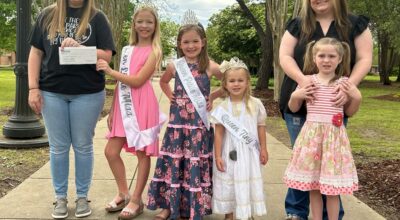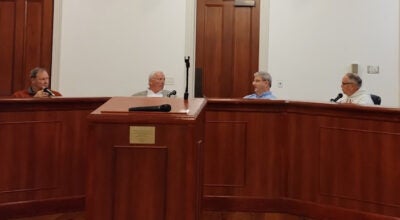Q&Answer: Kevin McKinney, Marengo County EMA director
Published 10:25 pm Monday, July 21, 2008
Kevin McKinney is the Emergency Management Agency director for Marengo County. This week he sat down with The Times to discuss some important things for residents to know about hurricane season, whose peak time is coming soon.
Q: When is hurricane season?
A: Hurricane season typically starts June 1, and the peak time is usually August-September, but we have had them as late as October.
Q: Is there anything specific you would suggest the public do to be prepared for a hurricane?
A: With our experience from the last three hurricanes, we have found that power outage is our biggest problem. As I’ve told other groups, because of our timber in the area, it takes time to get all the areas back on.
Q: Would you suggest people invest in generators because of this?
A: Absolutely, because there’s no way to tell the severity of the storm and how much damage there’s going to be. According to state guidelines, Marengo County is not in the hurricane zone, where we actually have hurricane force winds, although we have had them register in the county before.
Q: Has anything changed significantly about emergency management since the last major hurricanes?
A: We have identified grocery stores and gas stations in the county and actually had electrical engineers to come in from the state to determine their voltage and wattage to see the size generators they would need. They’ve done something similar for the water systems as well. So we have a file of that (information) with the state, so when we call it will expedite the response.
Another thing is the county commission is entertaining the idea of the pre-event debris contracts. That’s going to help, because in the past the county crews have done the work themselves. They’ve realized that it is more work than they can do, so once they get this contract in place we will pre-identify a company that can pre-stage equipment in Marengo County to assist as soon as the storms hit.
Q: There has been word that FEMA will no longer provide ice as a commodity in the event of a storm. Is this true, and if so, how will this effect the county?
A: Generally FEMA supports the state with water, ice and tarps for rooftops. In the past, those three commodities had been pre-positioned in Alabama at Maxwell Air Force base in Montgomery. This year FEMA has made the decision that ice will not be one of those commodities.
Some of the reason is due to cost, but the catch phrase is that ice is a “feel-good” commodity, and is not really necessary but people like to have it. It’s my understanding that they will have some pre-positioned ice for people who need to keep medication cool and needs like that.
And that’s the bad part because ice is the only commodity that we’ve had to order in Marengo County. We have to order commodities two days ahead of time to get them here by truck. In saying that, though, we feel like there will be enough pressure for them to reverse their decision.
Q: When you say order, does that mean EMA directors have to order supplies from the state and they aren’t automatically sent?
A: Right. We have a 96-hour checklist and the day before the storm, we have conference calls twice a day with all the county EMA directors in the state and that’s when we place our orders and discuss our situations.
Q: Since hurricanes Ivan and Katrina, do you think people have changed they way they view being prepared for a hurricane?
A: I do, strictly because it has happened. People don’t generally believe things are going to happen until they do happen. And since we’ve had those two storms, there are a lot more generators in Marengo County. Power companies are doing a much better job of maintaining right of ways. We’ve seen a lot of improvement I think.
Q: What would be your most important piece of advice for people to be prepared?
A: The best thing can be explained by a brochure that FEMA put out called “The First 72 is on You,” and what that means is the first 72 hours is the public’s responsibility to take care of themselves. They need to be aware of that, and that means whatever they need to do: go to some one else’s house; get food, shelter, clothes and water. Because we have to go out and clear the roads and get lines repaired before we can do anything. It’s not going to happen overnight, and people need to remember that.





